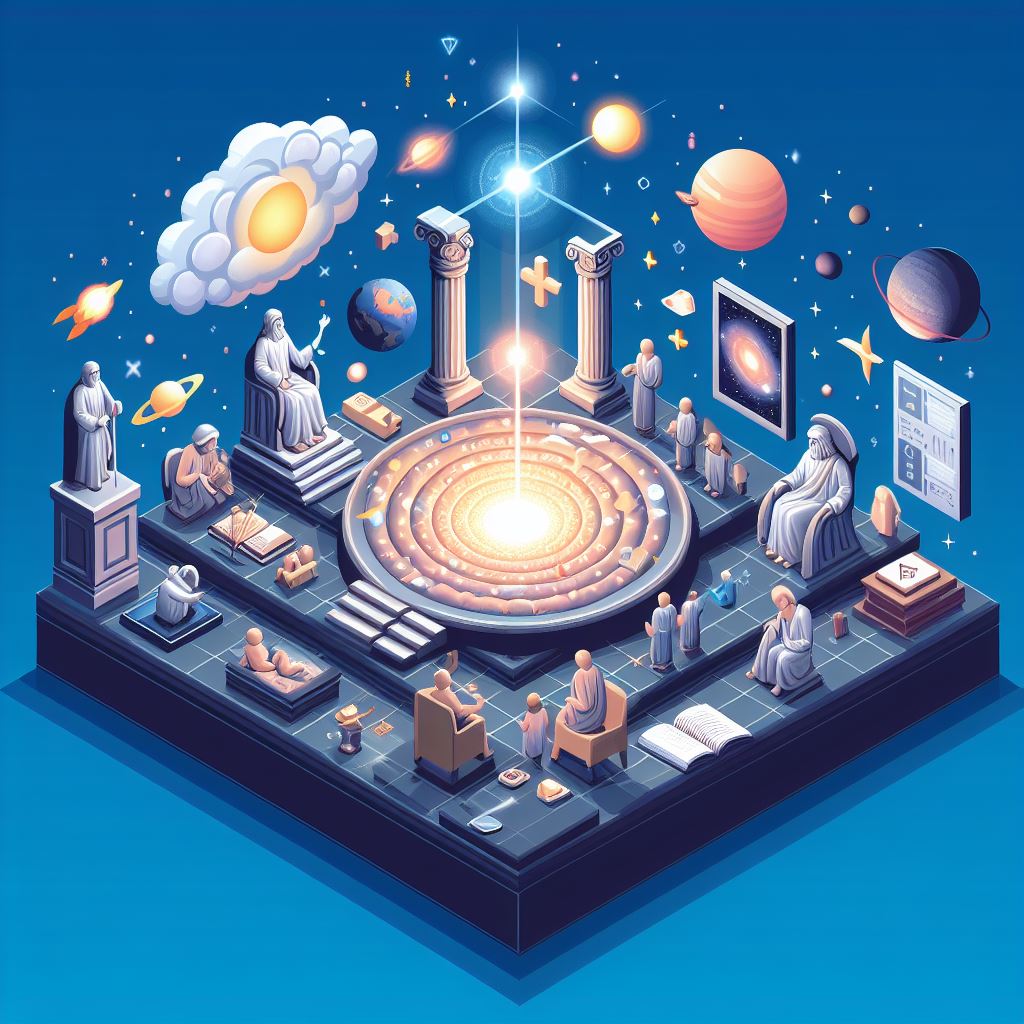Let us look at some philosophical arguments for the existence of God. There are multiple of these, but for today we look at the “Kalam cosmological argument”. We first look at the argument. Then I will criticize it. And in the end I will show some insight we gained.
The Kalam consists of two premises. Things we take as a given. And one conclusion which follows if you accept the premises.
- Everything that begins to exist has a cause.
- The universe began to exist.
Therefore, the universe has a cause.
This is plain philosophy or logic. Three sentences, but you can talk a lot about them. To accept the conclusion, we have to accept the premises. So let us look at those. “Everything that begins to exist has a cause.” This comes from our common experience. If we see a chair, we know there was a time when it did not exist, and at a certain point in time it began to exist. We also know it began due to some cause. The chair has its cause in the carpenter who built it. We have our cause in our parents. Our state has its cause in its founding ceremony. And so on.
The second premise is maybe more controversial. The universe began to exist. When philosophers say things like that, they don’t mean before existed a quantum-soup or physical potential or anything like this. They mean when the universe began, nothing was there before. In the way: Nothing physical. It came into being from nothing. This means the cause of the big bang or what every theory you subscribe to. There are other theories floating around. But for the current argument, we assume this to hold true.
Given the two premises, it follows that the universe has a cause. The big bang has a cause. Theists equate this cause with God.
Now, let us now criticize this. First we have to clear up a confusion of ontology. What kind of existence are we talking about? There are physical composite things. Like tables, chairs and so on. For these, the premise holds. Then there are non-composite things. Atoms. Meaning particles that cannot be split further. I am not a physicist, but I think the fundamental particles are not created, but only transformed. But I don’t know. The other view is that the universe is just a huge wave-function. The cause of this function is actually itself. It just evolves. There might not have been a beginning of the wave function. Let us state, we have never seen a wave function being created. Then the wave function might be such an uncaused causer. But maybe the wave function has a beginning and a cause. It has to be from another ontological category. It cannot be an atom or a chair. It has to be something different. Now we can only speculate. What is the causing thing of the physical realm? Although, this is interesting, the first premise looked so obvious, but there are different kinds of causation, and they are not equivalent and for some of them the premise might no hold.
It remains to be shown, whether an instance of one ontological category can cause an instance of another. Of course, a combination of atoms can make up composites. But can composites then cause something very different like: Numbers, Gods, Psyche or even Atoms? Or maybe they need to have a common cause. I don’t know. But let’s at least conclude. Stating that everything that begins to exist has a cause is not obvious, if we are talking about something other than composite objects.


Leave a Reply